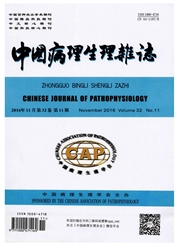

 中文摘要:
中文摘要:
目的:探讨丁酸钠对人外周血来源的树突状细胞(DC)的成熟状态和免疫学功能的影响。方法:通过粒细胞一巨噬细胞集落刺激因子(GM—CSF)和白细胞介素4(IL-4)结合丁酸钠体外诱导人外周血来源的DC,6d后结合不同成熟因子诱导成熟,并以流式细胞仪、FITC标记的Dextran的内吞检测、混合淋巴细胞反应(MLR)、ELISA法分别检测DC的表面标志、内吞能力、DC刺激淋巴细胞增殖能力和白细胞介素12(IL-12)分泌量的改变。结果:丁酸钠可以抑制DC成熟,使DC具有较强的抗原吞噬能力,而刺激淋巴细胞增殖能力和IL—12的分泌能力下降。结论:丁酸钠可以抑制DC成熟,诱导不成熟DC生成,在移植免疫耐受方面具有较好的应用前景。
 英文摘要:
英文摘要:
AIM: To investigate the immunological function of sodium butyrate - induced immature dendritic cells in vitro. METHODS : The human monocyte - derived dendritic cells were induced in the presence of human granulocyte macrophage- colony stimulating factor( GM -CSF) and interleukin- 4 (IL- 4), combined with sodium butyrate. The immunological function of sodium butyrate - induced dendritic cells was detected by the FCM, endocytic activity, T cells stimulatory proliferation capacity, and interleukin - 12 (IL - 12) production. RESULTS: Sodium butyrate could down- regulate the major histocompatibility complex (MHC) class Ⅱ and costimulatory molecules of dendritic cells, increase the endocytic activity, induce a stage of T - cell anergey, and inhibit the T helper cell type 1 - skewing factor IL - 12 production. CONCLUSION: Sodium butyrate inhibits the maturation of dendritic cells and induces production of immature dendritic cells, which may help to explore the machenism of its epigenitic modification.
 同期刊论文项目
同期刊论文项目
 同项目期刊论文
同项目期刊论文
 期刊信息
期刊信息
